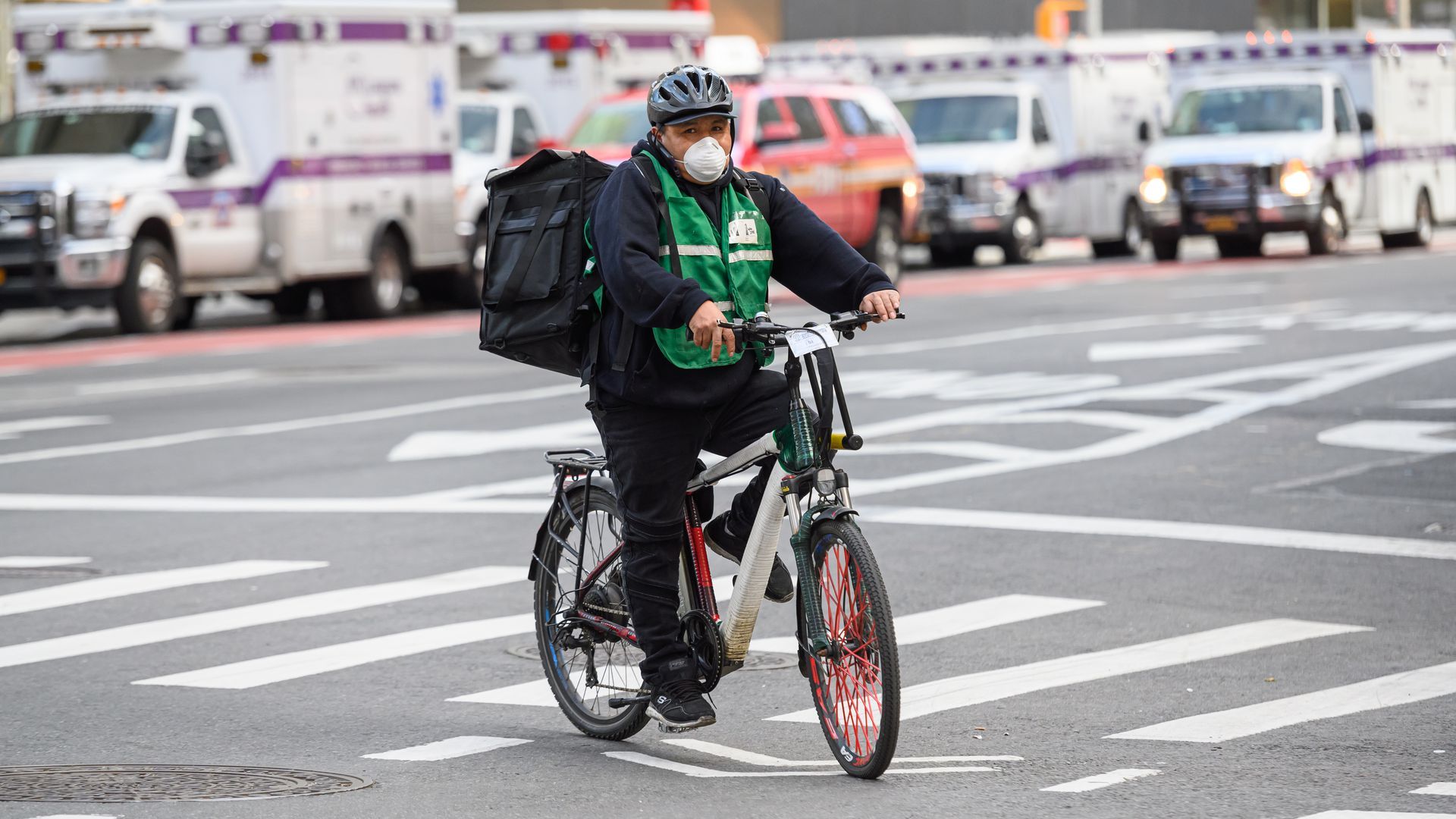The delivery economy's hiring surge
Add Axios as your preferred source to
see more of our stories on Google.

Out for delivery in Manhattan. Photo: Noam Galai/Getty Images
As every sector sheds jobs, grocery chains and delivery companies are bucking the trend and hiring by the hundreds of thousands.
The big picture: While much of America stays home, a big portion of the jobs lost in the retail and restaurant sectors are being reallocated to the delivery economy.
- An illuminating stat: Before the pandemic, there were very few searches for grocery positions on the jobs site ZipRecruiter. Since the start of the crisis, searches have spiked 22%, says Julia Pollak, a labor economist at ZipRecruiter.
- Amazon has hired 175,000 new workers in recent weeks.
- Instacart tells Axios that its network of personal shoppers — defined as individuals who have fulfilled an order in the last 30 days — has jumped from 200,000 when the crisis began to 500,000 today.
- Walmart has hired nearly 200,000 people.
Postings for grocery and delivery workers haven't dwindled, Pollak says.
- In fact, postings that include the terms "desperate need" or "urgent need" for candidates rose 15-fold between February and March, and then doubled again in April.
Yes, but: The quality of these jobs hasn't changed despite the demand. The pay being offered for jobs like delivery driver and grocery picker hasn't risen above pre-pandemic levels. And around 10% of the ZipRecruiter postings are explicitly for temporary gigs, compared to less than 2% before the crisis, Pollak says.
What to watch: It's likely that some of this temporary swelling in the grocery and delivery sectors will outlast the coronavirus as consumers' habits change.
- Those who have turned into grocery delivery evangelists won't suddenly switch back to shopping in-person all the time.
The bottom line: "In the end, the companies that are supporting stay-at-home economies will probably need a workforce that is bigger than it was before the pandemic, but smaller than it gets to at the height of the pandemic," Jed Kolko, Indeed's chief economist, tells Axios.
